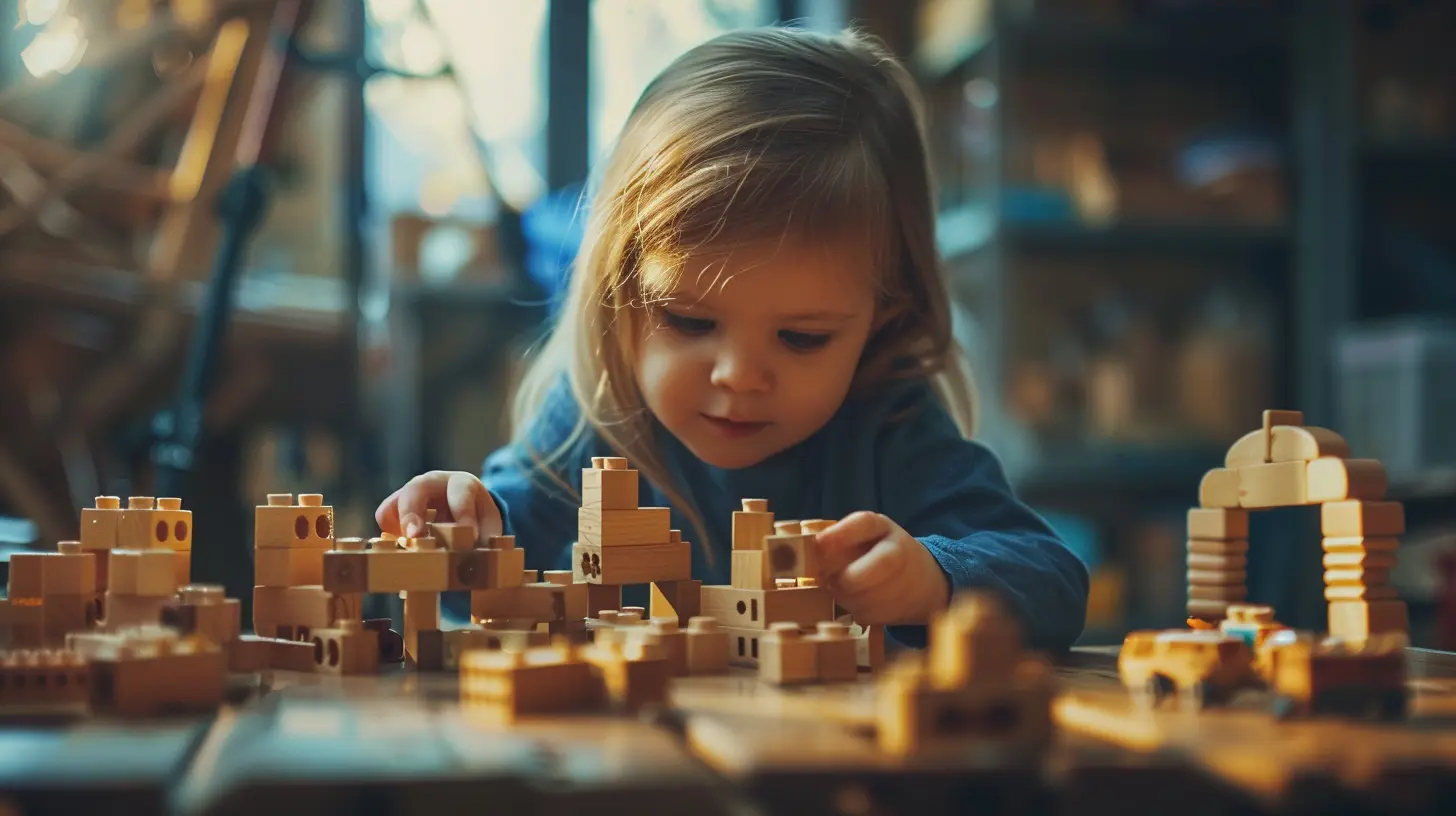How Pretend Play Shapes a Child’s Creative Mindset
21 July 2025
Childhood is full of magical moments—tea parties with invisible guests, action-packed adventures in the backyard, and make-believe superhero rescues. But did you know that these seemingly simple pretend play activities are shaping your child’s creative mindset in profound ways?
Imagination fuels creativity, and creativity is the foundation for problem-solving, innovation, and success later in life. So, why is pretend play so essential, and how does it mold your child into a creative thinker? Let’s dive in.

What Exactly Is Pretend Play?
Pretend play—also known as imaginative or make-believe play—is when children create stories, characters, and scenarios purely from their imagination. Whether they’re playing house, pretending to be doctors, or acting out their favorite movie scenes, these activities expand their thinking and understanding of the world.Unlike structured activities with set rules, pretend play lets children take control. They craft their own stories, solve imaginary dilemmas, and, in the process, develop critical life skills that extend far beyond childhood.

How Pretend Play Nurtures Creativity
Creativity isn’t just about painting and drawing—it’s the ability to think outside the box, find new solutions, and innovate. Pretend play lays the groundwork for this by encouraging:1. Problem-Solving Skills
Think about it—have you ever watched your child build a castle out of couch cushions? Suddenly, a dragon (aka the family pet) approaches, and they must figure out how to save the kingdom.Through pretend play, kids face self-created challenges and work through them independently. Whether it's fixing a "broken" toy car, rescuing a stuffed animal in distress, or running an imaginary bakery, they learn to make decisions and solve problems creatively.
2. Flexible Thinking
Life doesn’t always go according to plan, and adaptability is a key skill for success. Pretend play encourages children to shift perspectives and come up with alternative solutions when things don’t work out.For example, if they’re playing restaurant but can’t find a toy cash register, they might use a shoebox instead. This ability to think flexibly will help them later in school, work, and relationships.
3. Stronger Communication and Social Skills
Ever noticed how kids sound like miniature adults when they’re playing "grown-up"? They mirror what they see and practice using new vocabulary and expressions.Engaging in pretend play—especially with friends or siblings—helps children improve their language skills, express themselves clearly, and negotiate roles. In turn, this lays the foundation for effective communication in real-life scenarios.
4. Emotional Intelligence Development
Pretend play allows children to explore different emotions in a safe environment. When they act out situations like comforting a "sick" teddy bear or navigating a pretend argument with a friend, they experience empathy, compassion, and emotional regulation.Understanding emotions early helps children interact better with others and develop stronger relationships as they grow.
5. Unstructured Exploration Leads to Innovation
Think about some of the world’s greatest innovators—Albert Einstein, Steve Jobs, Elon Musk. What do they all have in common? A strong ability to imagine, create, and think differently.Pretend play fosters this same kind of innovative mindset. When kids imagine new worlds, invent scenarios, and push the boundaries of what’s possible, they’re training their minds to be inventive thinkers.

The Science Behind Pretend Play and Brain Development
Research backs up what parents have known for years—play is powerful. Studies show that engaging in imaginative play stimulates the prefrontal cortex, the part of the brain responsible for problem-solving, decision-making, and social behavior.According to child development experts, pretend play strengthens neural connections, fostering critical thinking and creativity. In other words, when kids engage in make-believe, they’re literally wiring their brains for future success.

How to Encourage More Pretend Play at Home
If you want to nurture your child’s creativity through pretend play, here are some simple ways to encourage it:1. Provide Open-Ended Toys
Toys that have multiple uses spark imagination. Think building blocks, dolls, dress-up clothes, and play kitchens—these allow kids to create endless play scenarios rather than following predetermined rules.2. Limit Screen Time
While technology has its benefits, too much screen time can stifle imagination. Giving your child enough unstructured time to play without digital distractions helps their creativity flourish.3. Join in the Fun
Sometimes, all it takes is a little participation from you! Join your child’s pretend tea party, play customer at their imaginary store, or be the superhero sidekick. Your involvement not only strengthens your bond but also encourages their creativity.4. Encourage Outdoor Play
Nature provides the best setting for imaginative play. A simple backyard can transform into a jungle, a pirate ship, or a magical kingdom. Let your child explore and create using natural elements like sticks, leaves, and rocks.5. Celebrate Their Creativity
When your child proudly presents their latest "invention" or shares their imaginative story, celebrate their creativity! A little encouragement goes a long way in fostering confidence in their ideas.The Long-Term Impact of Pretend Play
As children grow, their pretend play evolves into more sophisticated forms of creativity. The storytelling skills they develop as kids may lead them to become great writers. The problem-solving abilities they practice in play could translate into careers in engineering or business. The ability to think differently might make them future innovators and leaders.In a world that increasingly values innovation and out-of-the-box thinking, pretend play is more than just fun—it’s an essential building block for success.
Final Thoughts
The next time your child hands you a "cup of tea" from their invisible café or insists that their stuffed animal can talk, remember—this isn’t just play. It’s an opportunity for them to develop imagination, creativity, and problem-solving skills that will benefit them for a lifetime.So, embrace the magic of pretend play, nurture their creativity, and watch your child soar. After all, today’s make-believe explorers, chefs, and superheroes could be tomorrow's inventors, leaders, and dreamers.
all images in this post were generated using AI tools
Category:
Encouraging CreativityAuthor:

Noah Sawyer
Discussion
rate this article
2 comments
Ardent Newman
Embracing pretend play isn’t just fun; it’s the secret sauce for nurturing creativity. When children weave their own narratives, they’re not just playing—they’re building the innovative thinkers of tomorrow. Let them imagine!
December 18, 2025 at 5:19 PM

Noah Sawyer
Absolutely! Pretend play is essential for fostering creativity in children, allowing them to explore, imagine, and develop critical thinking skills that shape their future as innovators.
Wren Snow
Embrace the magic of pretend play! It nurtures creativity, fosters imagination, and lays a strong foundation for your child's future success.
August 1, 2025 at 4:40 AM

Noah Sawyer
Absolutely! Pretend play is crucial for creativity and imaginative growth, setting the stage for lifelong success.


